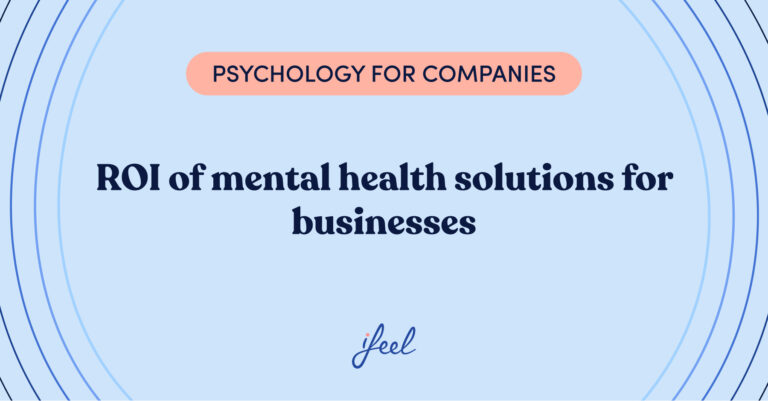The Employee Net Promoter Score, also known as eNPS, is a score that determines the likelihood that a company’s employees would recommend others to work for it.
As you can see, the Employee Net Promoter Score is quite a demanding instrument: you have to give a very high score to be considered a sufficiently motivated employee to drive inbound recruiting processes. It is most commonly used as a question asked to team members on a scale of 0 to 10, with 0 being not at all likely and 10 being highly likely. The result is obtained by subtracting the percentage of people who answered between 0 and 6 from those who answered 9 or 10.
By the way, try experimenting with the Employee Net Promoter Score in your company. If your company’s HR department hasn’t already asked you: from 0 to 10, how likely are you to recommend your current company as an excellent workplace?

Interpreting the Employee Net Promoter Score
The Employee Net Promoter Score is an in-house version of the satisfaction surveys conducted with external customers. They are asked how likely they are to recommend the product or service they have received to other external customers. The Employee Net Promoter Score is the same but oriented to a crucial part of any organization: its internal customers, and the employees, to analyze how likely they are to recommend other potential employees to join the project.
Employee Net Promoter Score: Watch out for subjectivity
As in any other tool designed to gather people’s opinions on a given subject, it is important to analyze what those people say and which people say it. This means that such subjective impressions must also be interpreted in terms of who is giving them.
While some of our opinions are unwavering and virtually impervious to circumstance, other views may vary in content and how we express them. All these factors should be considered when using an Employee Net Promoter Score.
For example, an employee asked if they would recommend their own company to others to work for might say, “Absolutely not”, “Of course” or “It depends on the position that person was going for”. Or “It depends on when you ask me”!
It is different from asking them at a time of high work stress and workload or immediately after they, their team, or the company has suffered a major professional setback as it is to ask them at a more optimistic time. It goes without saying that when the expected goals are achieved, an unexpected success is achieved, or a significant bonus has just been received, everything looks very nice, and unfavorable opinions must be softened.
Attention to the employees who are well but not very well
The Employee Net Promoter Score is often referred to as an instrument used to gauge employee loyalty to the organization. However, that same employee may be unhappy or dissatisfied enough not to recommend it to others. It is not a bad idea, but it should also be remembered that an employee can be extremely loyal to the company, performing their tasks strictly, solving problems, avoiding conflicts, speaking well of the company (or, at least, not speaking poorly of it) and, of course, remaining in the workforce in the long term…
It seems an inconsistent attitude on their part. Still, if you look at it, an employee may be loyal (stays) and reliable (does not attack the company) but put little or no energy into contributing to the company’s inbound recruiting.
Passive employees
Many of these employees are classified as “passive” when analyzing the satisfaction survey results included in the Employee Net Promoter Score measurement.
They are preceded by the so-called “detractors” (those who express weak or no satisfaction with the company) and placed immediately before the “promoters”, who are those employees who are outstandingly satisfied with the organization. The so-called passives are characterized by giving a good but not outstanding score and are likely to remain on the team but are not enthusiastic about promoting the company to the outside world.
For this reason, the Employee Net Promoter Score must allow decisions to be made to expand the number of employees who will potentially “hype” the company but also not become a naïve HR KPI.
Although the emphasis of the analysis is placed on the percentages of the extremes, it should also be a score that is as fine-tuned as possible in terms of the information it provides. That is, it should be able to identify the nuances that are more or less hidden behind the explicit speeches of employees. This will make it possible to examine what happens to those team members who are good but also not very likely to advertise the organization positively.

Supporting emotional well-being in organizations
At ifeel, we know that to make the best decisions for the success of the company and the well-being of the employees, there are few things as valuable as talking directly to them. This means that practical and, most importantly, efficient communication about relevant issues within the company (such as the level of satisfaction of those who make it possible) is essential if sustainable growth is to be achieved.
To help them achieve this and establish good communication habits within the organization’s processes, our team of psychologists, experts in well-being at work, has created an emotional well-being service for companies that supports the entire team of a company, including those responsible for Human Resources.
These managers must ensure that the company’s final results are close to the objectives set. This is why it is essential to support them in guiding the relationship between the company and the employee and to ensure that it is as beneficial as possible for both.
That’s why, through our service, you can receive personalized, data-driven advice on improving your teams’ psychological well-being. Are you part of your organization’s Human Resources department? Try our program now and find out how it could help you.
In addition, this program offers all employees a complete mental health care service that they can access in different ways depending on their needs. Those who wish can access an online therapy service with one of our psychologists, specialized in cases like theirs, or interact with one of our professionals to receive emotional support in a more specific circumstance that concerns them.
Of course, in our Resources section, you can find different materials, such as podcasts, HR Guides on various topics (e.g., employee experience or how to design a good HR strategy), or interviews with important HR positions. In addition, we have a Psychosocial Risk Factors Template, which you can use to comply with the requirements of the Labor Inspectorate.
We hope you found this post on the Employee Net Promoter Score interesting. If you would like more information about our emotional well-being program for companies, just ask us, and we will contact your team as soon as possible.







